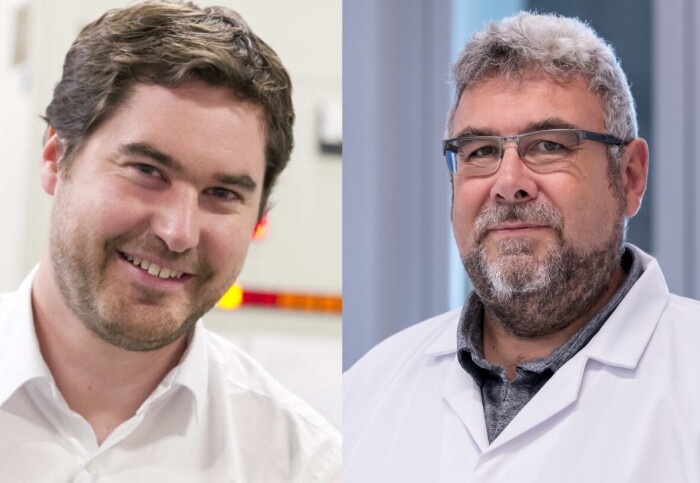Two Imperial academics recognised in IOM3 awards 2024

Congratulations to Professor Finn Giuliani and Dr Peter Petrov on receiving awards from the Institute of Materials, Minerals and Mining.
The Insitute of Materials, Minerals and Mining (IOM3) presents a range of awards, medals and prizes every year to recognise personal achievement, for published work and for contributions to the Institute, knowledge, outreach and profession.
The IMO3 is one of the leading global professional membership bodies for those studying, working in, or interested in the science, engineering, and technology of materials and natural resources.
Professor Finn Giuliani, Verulam Medal and Prize
 Professor Finn Giuliani has received the Verulam Medal and Prize in recognition of distinguished contributions to ceramics, including refractories. As the 2024 recipient of the award, Professor Giuliani will receive a medal.
Professor Finn Giuliani has received the Verulam Medal and Prize in recognition of distinguished contributions to ceramics, including refractories. As the 2024 recipient of the award, Professor Giuliani will receive a medal.
Professor Giuliani is a Professor of Structural Ceramics in the Department of Materials. He also leads the Imperial Centre for Cryo Microscopy of Materials, a unique facility at Imperial which examines environmentally sensitive materials.
Professor Giuliani specialises in transmission electron microscopy, scanning electron microscopy, atomic force microscopy, focused ion beam, nanoindentation, PVD growth of coating, and mechanical testing.
He recently collaborated with researchers at King's College London to investigate Komodo dragon teeth, discovering that they have iron-coated teeth to rip apart their prey. Find out more about this story.
Dr Peter Petrov, The Henry Royce Institute Award for Innovation by a Technical Professional

Dr Peter Petrov has received the Henry Royce Institute Award for Innovation by a Technical Professional. The award recognises the significant impact that technical professionals have on the advancement of materials research.
Dr Peter Petrov is a Principal Research Scientist at the Department of Materials at Imperial College London and Royce at Imperial Technology Platform Lead for Thin film device materials.
Dr Petrov investigates the research and development of thin films, multilayer structures and devices. He is recognised for the experimental confirmation of the negative capacitance in ferroelectrics-based multilayers at room temperature. He has also developed methods for growing epitaxial oxide layers on graphene and the deposition of plasmonic nitride thin films at CMOS-compatible temperatures.
Dr Petrov has facilitated the establishment of high-technology research facilities, commissioning all scientific equipment in the Thin Film Technology Laboratory at Imperial. He was part of the team designing and specifying the equipment for nanofabrication, imaging and characterisation core facilities at the King Abdullah University for Science and Technology and the Atoms to Devices Facility at Royce, Imperial College London.
Dr Petrov has also developed and delivered lecture courses to Undergraduate, MEng and MSc students at Imperial as well as short practical, user-oriented courses for the Royce at Imperial facility users from academia and industry.
Article text (excluding photos or graphics) © Imperial College London.
Photos and graphics subject to third party copyright used with permission or © Imperial College London.
Reporter
Kayleigh Brewer
Department of Materials